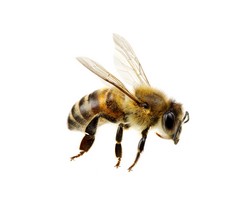How bee brains tick
Metacognition is monitoring one's own thoughts and using that knowledge to guide decision-making, which is only known to be exhibited by humans. It is not known whether honey bees and other non-human species possess this ability. The EU-funded NEUROBEECOG2012 (Smart foraging: Neuronal complexity, cognition and foraging in honey bees) initiative investigated how honey bees solve choice tasks when available information is limited. Project researchers examined how bees recognise and communicate uncertainty about floral resources to other colony members. They rewarded free-flying bees for making correct choices and punished incorrect choices during experiments. The project aimed to determine how natural and manipulated changes in neuronal complexity relate to bees' ability to solve cognitively demanding tasks. The researchers studied this by examining changes that occur in key regions of the honey bee brain. The research team found that honey bees are able to selectively avoid making choices when information is limited. NEUROBEECOG2012 also discovered that bees change their foraging performance over their lifetime. NEUROBEECOG2012 found that more synaptic connections in the visual region of the bee brain improved learning speed and information recall. This research will ultimately help scientists to better understand how human brains work.
Keywords
Bees, metacognition, decision-making, honey bees, NEUROBEECOG2012, foraging

